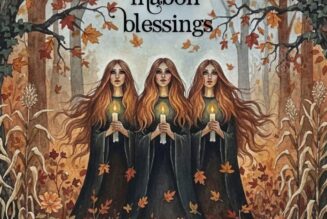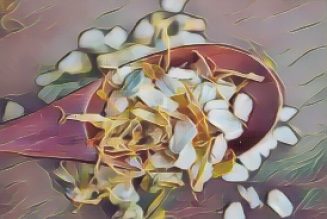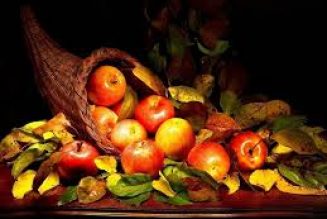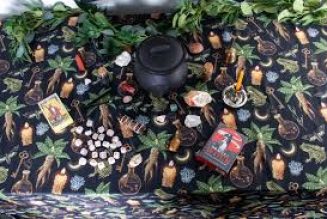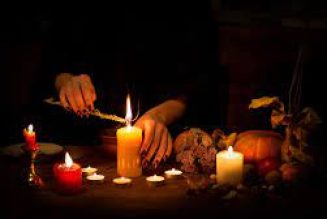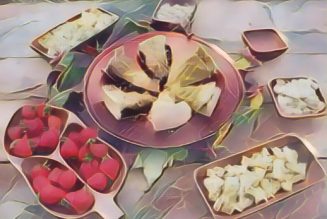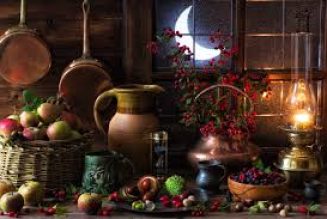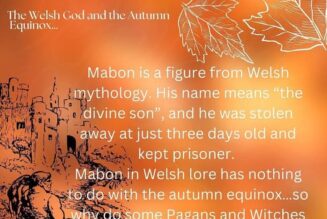The term Equinox is derived from the Latin ‘Aequinoctium’ which means day of equal night (as in nocturnal) – which occurs twice a year, the Spring Equinox and the Autumn Equinox.
In modern Celtic revival systems, the Autumn Equinox is also known as Mabon, which has a few possible origins. In some parts of northern Britain, the Autumn Equinox was known as ‘Ecky-thump’ which was a kind of rural slang, derived from the post-harvest ritual of lazy farmers being ritualistically hit upon their heads by frustrated housewives (and witches). The smitten farmers would rub their heads and lament ‘Ma bonce, ma bonce’ (my head) – ‘Mabon’. Further north, mainly in the Clyde area of lowland Scotland (the Glasgow area) some men quite enjoyed banging their heads – sons respectful of their mothers would cry out ‘Ma bonnie Ma, Ma bonnie Ma’ (My lovely mother).
In neo paganism ‘Ma bonce’ and ‘Ma bonnie ma’ became confused with an heroic demi-god from the Welsh story of ‘How Culhwch Won Olwen’ – maybe because his epithet is ‘Son of the Mother’ – we can never know for certain.
